The intention with which I have written this article is to give an overview of solar energy technology, thereby giving a non-science person an overall idea of what the technology is all about. With the layman in mind, I will not be touching the very technical aspects of the technology, rather, I would try and explain in very clear and simple terms every important part one needs to know. I hope reading this would make you fall in love with this type of renewable energy and embrace it for the sustainability of the environment.

Source
Solar Energy- What it is
The word Solar means 'the Sun' in Latin which implies that Solar energy simply means energy from the Sun. Energy from the Sun which falls freely on our planet Earth is inexhaustible. The energy that falls on earth annually is about four million exajoules 4 x 1024 and it is claimed that only about 5 x 1022 can be tapped from this much1 (this simply means that there is so much of energy from the Sun that falls on earth and only some fractions of it can be used). For this fraction of solar energy to be tapped and used by man for various purposes, some technologies have been developed over the years.
Solar energy technologies-what they are
There are a variety of technologies available today to convert sunlight, that is, the Sun's energy into usable energy for man. The developed technologies are discussed below.
- Photovoltaic technology- converting sunlight directly into electricity
This technology converts energy from the Sun directly into electricity with the help of photovoltaic or solar cells. Solar cell are usually made of Silicon- a semi conducting material such that when sunlight falls on them, electrons are knocked off, and the flow of this electrons create electricity. Photovoltaic cells in their adoption for use are usually made into flat plates to face the Sun so as to tap as much sunlight as possible hence the name flat-plate Photovoltaic. The most popular photovoltaic technology is the flat-plate photovoltaic panels commonly known as solar panels which are used mostly on rooftops of home buildings to produce electricity. Solar panels are made up of several photovoltaic cells and a number of solar panels put together is called Photovoltaic arrays. Solar cells not as many as in solar panels are also used in small items like watches and calculators.
Photovoltaic technologies are being used all over the world to produce electricity on a large scale, China being a very good example, and on a small scale to produce electricity for homes- see an example here.
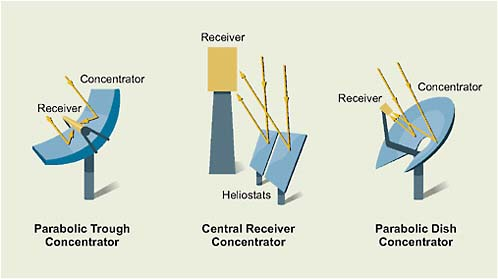
Optical configurations of concentrated solar power source
- Concentrating Power technology- using heat from sun to produce electricity
It is very important to state the difference between the technology explained above and the one about to be explained now. The Photovoltaic technology deals with sunlight only while concentrating power technology deals with the Sun's heat. In Nigeria where I am from, we have sunlight and heat in abundance hence making the country have a huge potential for exploiting and developing its solar energy capacity (how I wish this potential could be put to good use to produce sufficient electricity in the country)
Concentrating power technology harnesses the Sun's energy by concentrating the heat from the Sun with the help of some special mirrors to a point where it is then used as a heat source to power steam engines that produce electricity.
There are mainly three types of this technology which are distinguished by the types of mirrors used and their modes of operation.
Parabolic-trough systems: This system simply uses several curved (U shaped) mirrors which are long and rectangular. The mirrors are faced toward the Sun such that they focus sunlight on to a pipe which runs down to the centre of the trough and then heats the oil that flows through the pipe. The heated flowing oil then boils water in a steam generator to produce electricity.
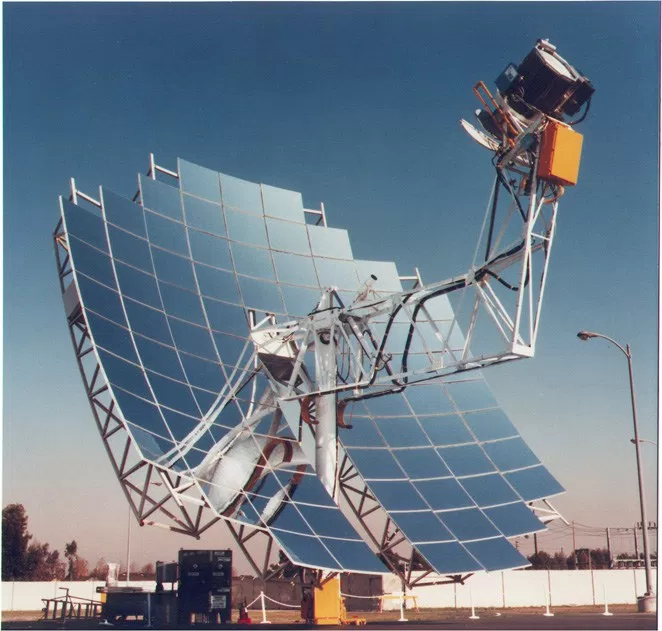
source
Dish/engine systems: The system makes use of a dish-shaped mirror which has a receiver. The mirror is placed facing the sun and it collects the sun's heat and concentrates it to the receiver. The fluid that flows within the engine is heated up through the heat taken by the receiver which then turns the turbine in the system to generate electricity.
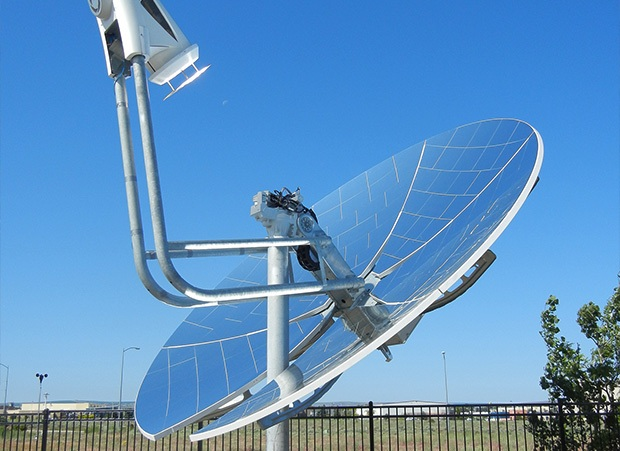
source
Tower power systems: In this case, a large field of mirrors is used to concentrate sunlight to the top of a tower which produces heat on the receiver. As the receiver receives the heat, it automatically heats up the molten salt inside of it which then powers a steam generator that produces electricity. The first solar tower used to produce electricity for commercial purpose is in China- you have to read about it [here]((https://steemit.com/solar/@woleybabz/a-tower-that-gives-power), it is pretty cool.
- Water heating technology- uses heat from the Sun to produce hot water for homes
This technology simply uses the Sun's heat to heat water for homes and offices. This technology usually makes use of flat-plate collectors which are mounted on the roof of buildings. The flat-plate collectors are rectangular boxes that are flat and thin. They have transparent glass on them that allows sunlight to pass through into the box so as to heat the black-coated tubes (the tubes are coated with black paint so that they would absorb heat maximally) inside which water flows. As the Sun becomes more intense, the water flowing through the tubes get hot and are stored in a tank which is well insulated so that the hotness of the water is retained for a long time.
- Passive heating and day-lighting technology- using the Sun's heat for space heeating and lighting in homes
This technology makes use of special building designs to make best use of the Sun's heat for space heating. The buildings are made in ways that they absorb and retain the maximum heat possible. Some ways of doing this is making the windows of the building face south because the south side of a building always receives the most sunlight, and also making the floor and walls of the building with materials that absorb heat well. Apart from space heating, most of such specifically designed buildings also enjoy day-lighting such that the interior of the room is well lit and there will be no need for electricity.
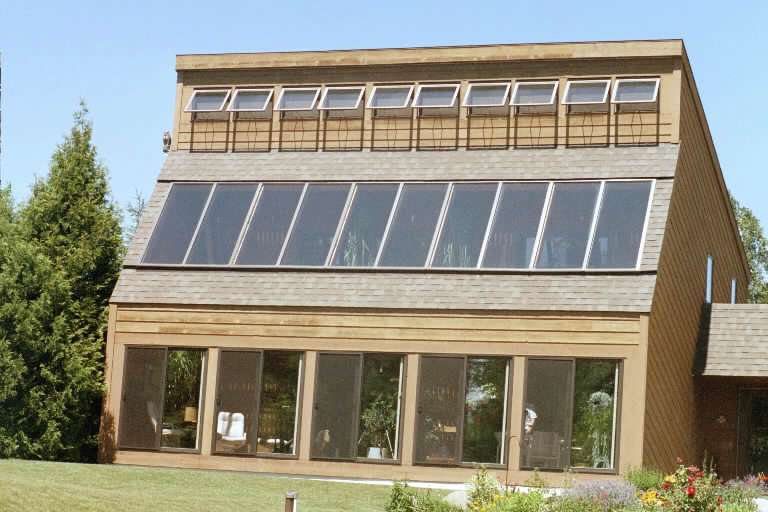
A building designed to enhance passive heating technology source
- Process heat technology- using the Sun's heat to heat or cool commercial or industrial buildings
This technology is used in large industrial buildings for space heating and cooling. The use of special materials and specific building designs are used to achieve these. The technology can also be designed to provide hot water to be used on a large scale.
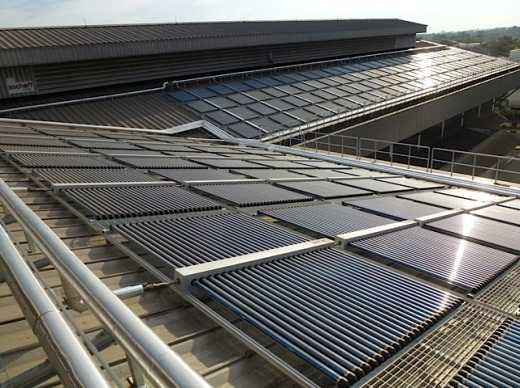
An industrial building on which process heating technology has been used source
Solar energy technology is being used in developed countries on a large scale and cutting their use of conventional fuels that produce emissions that hurt the environment. As the technology is still quite expensive(although the cost has reduced to an extent over the years) developing countries are still lagging behind in adopting the technology, hopefully the cost cost would keep reducing at a fast pace so the technology can be accepted the more on the global scale. Hopefully also,more technologies would be developed in the near future in tapping more of the Sun's energy and even more efficiently.
With this article, I hope to have educate the layman to an extent of basic understanding about solar energy technologies and with the knowledge gained he would be able to teach others what the technology is all about and hopefully would lead to a further global embrace and acceptance of this renewable energy technology.
Thank you very much for taking time to read. Kindly upvote the post if you like what you have read.
Kindly read some short write-ups I have made on solar energy:
A Tower That Gives Power
China's love for Panda shown in solar energy technology
Coal site turned largest provider of floating green energy
And here are some posts of me participating in a solar energy installation
Installation of a solar system
The other day, working close to the Sun
References:
1 https://www.sciencedirect.com/science/article/pii/S1364032117313485
https://www.nrel.gov/workingwithus/re-solar.html
http://www.renewableenergyworld.com/solar-energy/tech.html
https://www.livescience.com/41995-how-do-solar-panels-work.html
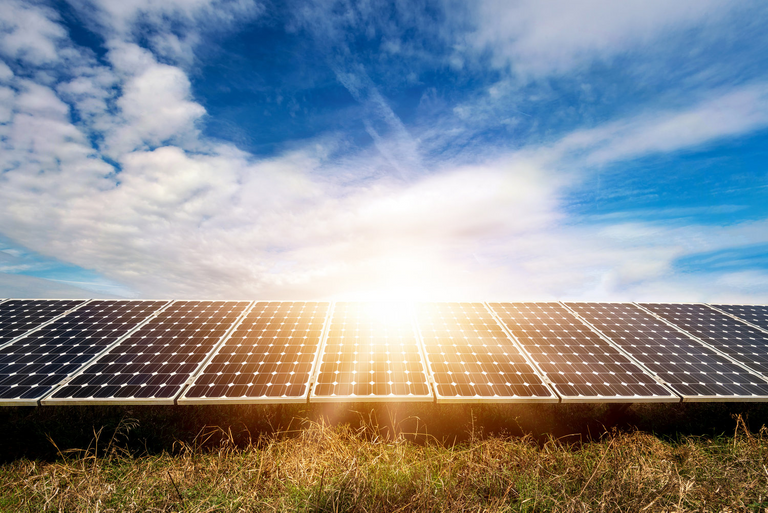
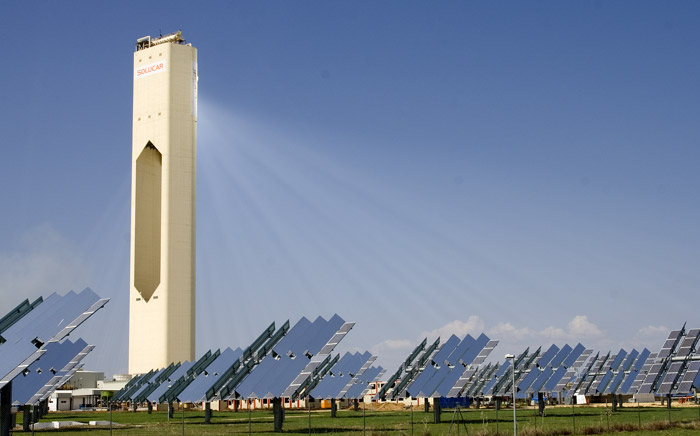
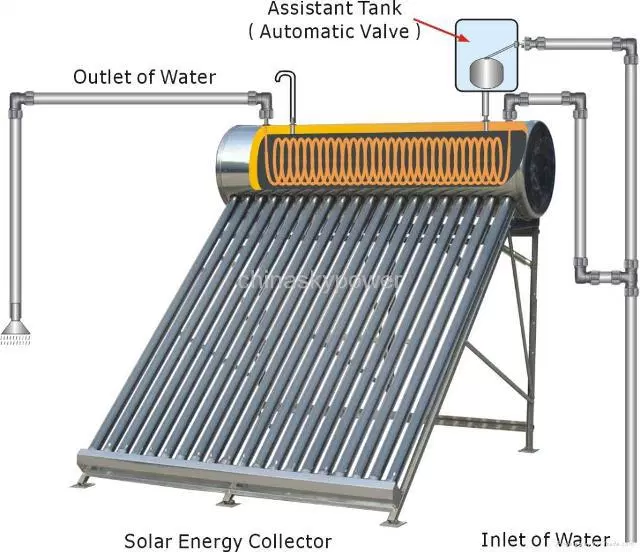
My word! This is an award winning Phd thesis type of article ooo! Well done bruv!
The untapped Nigerian potential is majorly due to the poverty levels that exist in our societies. We could begin some kind of solar power revolution through Steem & Steemit. I foresee such a time in the nearest future. Great work sir!
Thank you very much. You are very correct about bringing a solar power revolution using the steemit platform. Thanks again for your thoughtful comment.
im glad you agree. cheers bruv
Oluwole this is brilliant, I hope you have plans to make this your PhD thesis eventually. It's really brilliant, and the thought process is quite tangible. Well done.
Thanks bro. For PhD, if I decide to apply, my thesis topic would rather be on the bigger picture-renewable energy. Thanks again for reading and leaving this thoughtful comment.
This is so articulate and enlightening.
I look forward to seeing more sir
Thank you very much sir. Had to work hard to try to educate people about solar energy and I will try to make posts frequently as possible. Thank you again for dropping by.